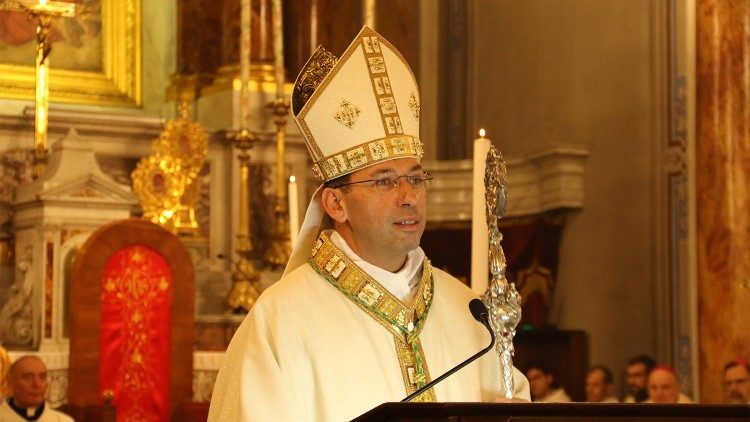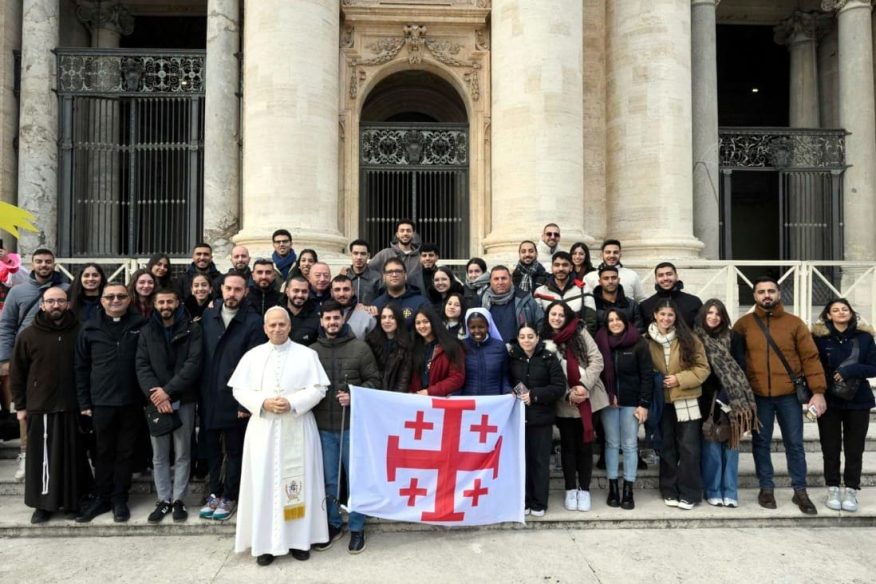Antuan Ilgit: New Apostolic Administrator of Anatolia

Antuan Ilgit, SJ, has been appointed by Pope Francis as the apostolic administrator sede vacante et ad nutum Sanctae Sedis of the Apostolic Vicariate of Anatolia, succeeding Monsignor Paolo Bizzeti, SJ. At 77, Bizzeti has resigned after leading the Vicariate since 2015. Monsignor Ilgit, formerly an auxiliary bishop, is the first native bishop of the region, marking a significant milestone in the history of the Church in Turkey.
Ilgit’s extensive experience includes roles such as assistant parish priest for the Turkish-speaking Catholic community at Meryemana Parish in Ankara (2010–2011) and spiritual father at the Pontifical Campano Interregional Seminary in Posillipo (2017–2020). He has also served as a professor of Moral Theology and Bioethics at the Pontifical Theological Faculty of Southern Italy (2017–2023) and as Delegate Vicar and Episcopal Chancellor of the Apostolic Vicariate of Anatolia since 2022. Currently, he is the spokesperson for the Turkish Episcopal Conference, overseeing youth and vocational pastoral care, and chairs the National Commission for Catechesis.
A Shepherd with His People
How do you feel about this appointment?
I am deeply humbled by the trust the Holy Mother Church has placed in me. Pope Francis’ constant care for the faithful of Anatolia encourages me to redouble my commitment. This appointment is a recognition of the richness and potential of the Church in Turkey, which, despite challenges, remains a living testament to the Gospel.
Being entrusted with a Vicariate as large as Italy is both a privilege and a call to be a pastor in the truest sense—present among the people, especially the poor, refugees, and youth. Inspired by the Holy Father’s emphasis on closeness, mercy, and compassion, I aim to embody these virtues as I journey alongside our faithful. A bishop must not merely manage but be a witness, always attentive to the Spirit and the needs of the Church.
The Catholic Church in Türkiye
How is the Church growing in Türkiye?
The Church here is vibrant and full of promise. It is a sanctuary for young people seeking purpose, Christian refugees searching for safety, and pilgrims tracing the footsteps of Saint Paul. Monsignor Luigi Padovese often called this land the “holy land of the Church,” a sentiment that resonates deeply with me.
The Church’s quiet but steadfast witness is reflected in its ability to welcome and support diverse communities. It fosters faith through action—providing spiritual nourishment, building community, and sharing Christ’s message of hope.
Dialogue and Unity
What are the fruits of dialogue with other Churches and faiths?
Ecumenism and interreligious dialogue are lived realities here. Catholic, Orthodox, and Armenian Apostolic pastors collaborate in celebrations and events, fostering mutual respect. Mixed-faith families navigate shared religious experiences, attending both Catholic and Orthodox liturgies.
The same spirit extends to dialogue with Muslims and followers of other faiths. We focus on common values—compassion, charity, and hospitality—while respecting differences. This shared life strengthens the bonds between communities, all of whom cherish this land as home.
Youth: The Church’s Future
Your commitment to young people is evident. How do they embody hope?
Young people bring vibrancy and innovation to the Church. Their eagerness to pray, organize Eucharistic adoration, and take responsibility for faith initiatives inspires me. They crave authenticity and substance, challenging us to remain close and attentive to their unique perspectives.
By involving them in leadership roles, we allow them to shape the Church’s future. Their creativity and devotion ensure the Church remains youthful and relevant.
Rebuilding After the Earthquake
How is reconstruction progressing after the earthquake?
The devastation from last year’s earthquake remains evident, particularly in Antioch and Iskenderun. While the government works to address these challenges, rebuilding efforts, including our cathedral, face bureaucratic hurdles.
Our priority, however, is the faithful themselves—the “living stones” of our Church. Many have left for safer areas, and we must provide jobs, schools, and healthcare to encourage their return. Caritas Anatolia is now better equipped to focus on local projects, addressing real needs while ensuring transparency and accountability.
The Middle Eastern Conflict
How do you experience the current conflicts in the region?
Living amidst ongoing conflict, we cannot remain indifferent. The Church stands firmly on the side of peace, echoing Pope Francis’ call to end war and embrace true reconciliation.
I am personally touched by stories of friends—an Israeli woman whose wedding was canceled and a Palestinian scholar unable to return to her studies. These stories underscore the shared humanity of those affected, reminding us that we are all called to love beyond borders.
Welcoming Pilgrims
Are pilgrims returning to the places of St. Paul?
Yes, pilgrimages are resuming, which is heartening. Groups are now visiting Iskenderun, where we welcome them to experience the roots of their faith. Despite earthquake damage, the land retains its sacred beauty.
We invite not only pilgrims but also diocesan priests willing to serve as fidei donum. Our parishes, especially those without permanent priests, need shepherds to guide their communities.
Migration and Hospitality
How does the Church address the challenges of migration?
Hospitality is a hallmark of Turkish culture. Our nation has opened its arms to Syrians, Iraqis, Afghans, and others fleeing conflict. The Church, though small, strives to make migrants feel part of the local Christian community.
While we provide material support, our greater mission is to affirm their dignity and help them rebuild their lives. The tragedies in the Mediterranean remind us of the sacredness of every life—a truth we hold dear as we extend Christ’s love to all.
Looking Toward the Jubilee
How are you preparing for the Jubilee?
We are focusing on young people, guiding them to rediscover the depth of Christ’s love. Inspired by the Pope’s encyclical Dilexit Nos, we will embark on a spiritual journey together, culminating in a pilgrimage to Rome.
A sign of hope for this Jubilee is the restoration of the small Capuchin church in Antioch. Though damaged by the earthquake, it will host Christmas Mass, symbolizing renewal and resilience.
Monsignor Antuan Ilgit exemplifies the pastoral closeness and compassion the Church seeks to embody in Türkiye. His leadership promises a renewed and vibrant future for the faithful, deeply rooted in Christ’s message of love and unity.
